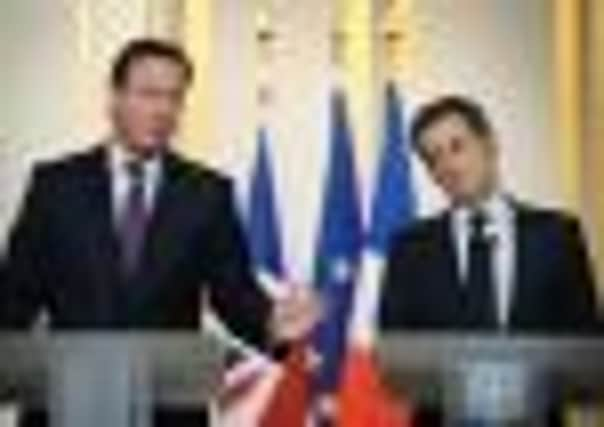Rob Corbidge: Curious courtship rituals see age-old allies roll with affectionate punches


Much as it looked like case of the United Kingdom engaging in “no-gotiations” in Europe once again against the centralising plans of the EU, president Nicolas Sarkozy’s words yesterday that he appreciated David Cameron had to protect the interests of his own country point more to the nuanced world of intra-European diplomacy, than the “row” so beloved of the Eurosceptic Tories and their supporters in the media.
Britain and France are closer now than they have been for some time – much as it was the wounds caused by the profound disagreement between Paris and London over the invasion of Iraq under Tony Blair that caused the most recent serious diplomatic damage, French and British diplomats have been working side-by-side since the start of the Arab Spring revolutions to swing international political weight to those struggling to shrug off their despotic leaders. That joint weight became kinetic in the sky over Libya.
Advertisement
Hide AdAdvertisement
Hide AdNowhere is this partnership clearer than in the UN over Syria. It is the British and French who have made a huge effort in trying to build consensus against the regime in Damascus.
And here’s a truth – much as the French-German axis moves much of the political water in Europe when it comes to economic matters – simply joint-currency fact – when Paris turns to the wider international arena, Berlin is an unreliable partner, loathe to involve itself in much beyond continental matters.
When Washington warns Nato it is not pulling sufficient weight in the alliance, it is to Germany the words are primarily directed.
Yesterday’s announcement of closer military ties between the two shows how the French regard Britain as their natural partner in defence co-operation.
Much as British hackles were raised at the end of January, when the French president opined on TV that “the United Kingdom has no industry any more” – remarks obviously intended for a domestic audience angry at his handling of the economy – his remarks have just a little more truth after Dassault recently defeated BAe in the competition for a lucrative contract to re-equip India’s airforce.
I also wouldn’t wish to bet against those same Rafale fighters being the first aircraft models to fly off the decks of the carriers currently being built on the Clyde either; the US F-35 programme in which Britain is a partner looks like a worse deal for us by the moment.
Equally, the announcement yesterday of increased co-operation in the building of a new generation of nuclear power plants makes stark an uncomfortable truth for the UK – we no longer possess the entire expertise for such a programme.
The French, however, are the nuclear power experts of Europe, having kept their pillars of industry safe in a way now seemingly alien to this country, even as our politicians suddenly wake up to the value of actually building things, rather than the invisible economy.
Which bring us back to where we started and the transaction tax.